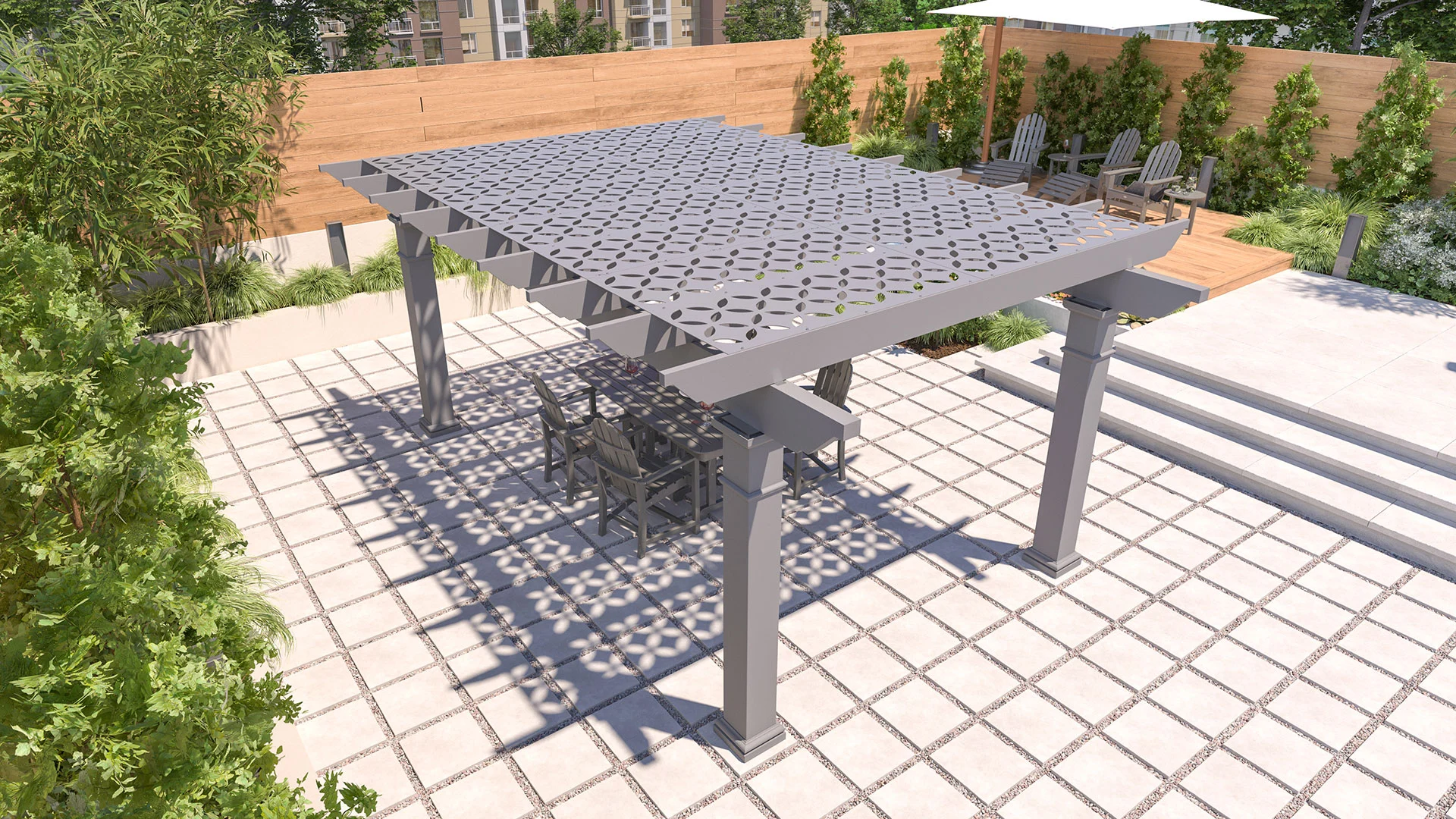Understanding Strategic Shade Planning
Strategic planning is the intentional design and placement of natural and artificial shade elements to maximize energy efficiency, enhance comfort, and increase property value. Effective shade planning can reduce cooling costs by up to 30% while creating comfortable outdoor living spaces.
Energy Savings and Comfort
A well-planned shade strategy can dramatically reduce indoor temperatures by up to 20 degrees Fahrenheit during hot summer months. This significant temperature reduction directly impacts your energy bills, with most homeowners reporting 15-50% savings on air conditioning costs. Beyond the immediate financial benefits, proper shade creates a more consistent and comfortable indoor environment while reducing strain on your HVAC system.
Key Statistic: Properly placed trees can reduce air conditioning costs by up to $250 annually.
UV Protection and Health Benefits
Quality shade structures serve as a critical defense against harmful UV radiation, blocking up to 95% of UV rays. This protection is especially crucial during peak sunlight hours between 10 AM and 4 PM. Creating shaded outdoor areas not only allows for safer outdoor activities but also extends the lifespan of your exterior furnishings and materials.
Indoor Living Benefits
Natural light filtering through well-placed shade elements creates a more pleasant indoor atmosphere by reducing glare on screens and electronic devices while still maintaining adequate brightness for daily activities. This balanced lighting reduces eye strain and creates more comfortable spaces for working, reading, and relaxing.
The reduction in solar heat gain also helps preserve your interior furnishings, as filtered sunlight is less likely to fade or damage fabrics, artwork, and wood flooring. Temperature regulation becomes more consistent throughout your home, eliminating hot spots near windows and reducing the dramatic temperature fluctuations that often occur between rooms. The improved insulation effect of exterior shade also helps dampen outdoor noise, creating a quieter, more peaceful indoor environment.
During winter months, deciduous trees that have lost their leaves allow beneficial solar heat to warm your home, while evergreen shade elements can help block cold winds, contributing to year-round indoor comfort and energy efficiency. This natural temperature regulation creates a more stable indoor humidity level, which can help prevent issues with condensation and reduce the potential for mold growth near windows.
Enhancing Outdoor Living
Shaded spaces fundamentally transform how families interact with their outdoor environment. Research demonstrates that spending time in comfortable outdoor areas leads to reduced stress levels, lower blood pressure, and improved mental well-being. These spaces naturally evolve into gathering points for various activities, from outdoor dining to remote work. Children particularly benefit, as they’re more likely to engage in physical activity when protected from intense sun exposure.
Environmental Impact
Trees and large shrubs contribute significantly to environmental health beyond providing shade. They act as natural air purifiers, absorbing carbon dioxide while releasing oxygen. Mature shade trees create valuable ecosystems, supporting local wildlife and beneficial insects. Additionally, shaded gardens require significantly less watering than those in full sun, contributing to water conservation efforts in your community.
Property Value and Protection
Investing in shade solutions offers dual benefits of protection and value enhancement. UV protection from shade elements helps preserve exterior paint, outdoor furniture, and decking from sun damage. Mature landscaping, particularly when strategically planned for, can increase property value by up to 10%. The combination of aesthetic appeal and functional benefits makes shade solutions highly attractive to potential future buyers.
Smart Shade Solutions
When planning your home’s shade strategy, consider both immediate and long-term solutions. Deciduous trees offer natural seasonal adaptation, providing shade in summer while allowing warming sunlight in winter. For quick results, awnings can offer flexible protection with modern appeal. Pergolas covered with canopies or decorative panels create natural cooling effects while adding visual interest to your outdoor spaces.
Advanced options like solar screens and living walls provide additional benefits beyond basic shade, including enhanced privacy and natural insulation. Strategic landscaping ties these elements together, creating a cohesive outdoor environment that serves multiple purposes throughout the year.
Frequently Asked Questions
What’s the fastest way to create shade for my home?
While trees provide the best long-term benefits they can take many years to mature, immediate solutions like awnings, shade panels, and pergolas can provide quick relief from sun exposure.
How does shade affect property value?
Well-planned shade solutions, particularly mature landscaping, can increase property value by up to 10%. This increase comes from both aesthetic improvements and functional benefits like reduced energy costs.
What are the best trees for energy savings?
Deciduous trees are ideal for energy savings as they provide shade in summer and allow sunlight in winter. Fast-growing varieties like Maple, Oak, or River Birch can provide meaningful shade within 3-5 years of planting.
Is professional planning worth the investment?
Professional shade planning often pays for itself through energy savings and increased property value. A professional can help optimize placement for maximum benefit and ensure solutions work with your specific climate and property layout.
